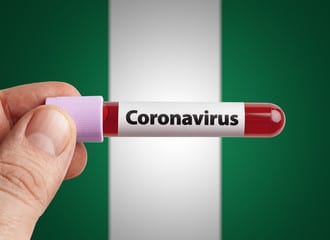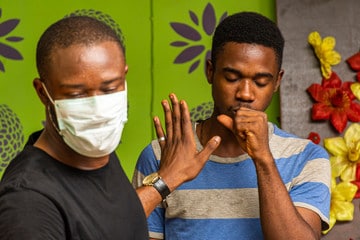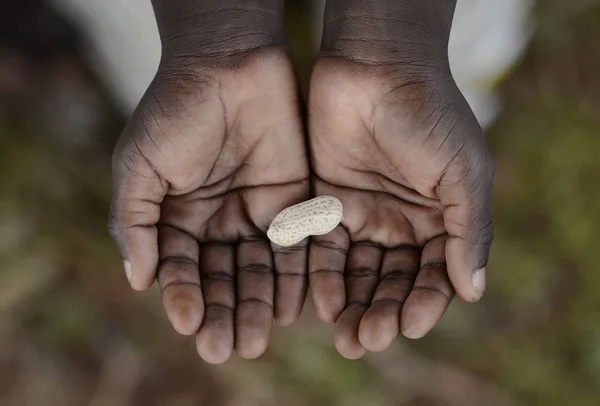The coronavirus outbreak has overtaken the whole world, and Nigeria was not left out. The coronavirus outbreak in Nigeria has caused panic, fear, and anxiety among Nigerians. There are so many questions you might have about coronavirus in Nigeria. Here’s all you need to know about coronavirus in Nigeria.
In a bid to curb the further spread of the virus in the country, the government has shut down the international wings of the three international airports in the country and has urged its citizens to maintain safe social distances while in public.
There’s a total lockdown in the country at the moment – schools, churches, mosques and all other public gatherings in the country exceeding 50 persons is no longer allowed.
The first case of coronavirus in Nigeria was on February 27, 2020. The virus was brought in by an Italian businessman on a business trip from Italy.
On March 9, another case of COVID-19 was confirmed in Ogun state. This involves the local who has had contact with the Italian citizen.
The Italian citizen and the second case of the coronavirus after receiving intensive health care from the Lagos state biosecurity facility have since recovered and are currently negative.
The third case of the coronavirus in Nigerian was confirmed on March 17, 2020. This time, it was a 30-year old returnee from the UK.
As of March 22, 2020, Nigeria has confirmed a total of 22 new cases with health workers tracing and quarantining those who may have had contact with the confirmed cases.
What is the coronavirus disease?

Coronavirus disease is a disease caused by a family of viruses called the coronavirus. The name of this group of viruses is derived from the Latin, corona, meaning halos. The virus is so named because of the radial spike like structures that projects from their spherical cores when observed under an electron microscope.
The current outbreak the world is fighting is called the coronavirus disease 2019 (COVID-19). The COVID-19 is caused by a novel strain of the coronavirus which has never been seen in humans before. This new strain of the virus is called the SARS-COV-2.
Apparently, this is not the first time humanity is battling an outbreak from the coronavirus family. In 2002-2003, there was an outbreak of the Severe Acute Respiratory Syndrome (SARS) in China, and in 2012, there was also an outbreak of the Middle East Respiratory Syndrome (MERS).
Both of these outbreaks were caused by members of the coronavirus family. [1]
What are the symptoms of COVID-19?
Coronavirus attacks the respiratory tract majorly in humans. As such, they tend to produce symptoms similar to that of common flu. These symptoms include:
- Persistent coughs
- Pressure-like pain in the chest
- Difficulty in breathing or shortness of breath
- Fever
- Sore throat.
Some persons may be asymptotic. They will not show any symptoms of the disease even when the virus is present in their body, but they can transfer it to other people.
While every cough may not be caused by the coronavirus, it is important that you get tested for it if you have recently started coughing and are also experiencing difficulty in breathing.
How fatal is COVID-19?
The fatality rate of COVID-19 compared to the SARS and MERS disease caused by other members of the coronavirus family is on the lower side.
Take, for instance, the World Health Organization (WHO) puts the fatality rate of the SARS virus at 7 percent while that of the coronavirus is 3 percent.
Even with its low fatality rate, the novel coronavirus has killed more people than the SARS and MERS virus (which is more deadly) combined.
The reason for this is simple – SARS-COV-2 has a very high spreadability rate. While the spreadability of the SARS and MERS virus is linear than of the coronavirus is exponential. This gives it the ability to infect more people and makes it hard to curb.
A lot of people infected with the COVID-19 virus will only have mild to moderate respiratory illness and recover without any special treatment. However, for older people or people with underlying medical conditions like chronic respiratory disease cardiovascular disease, diabetes, and cancer are more likely have complications from the virus. [2]
What is the Nigerian government doing to stop the spread of coronavirus in Nigeria?
The Nigerian government is working hard with health workers in the country to keep the disease in check.
As of March 23, 2020, there have been 33 active cases of COVID-19 in Nigeria. The Nigerian Center for Disease Control (NCDC) has been working hard to trace and quarantine those who may have come in contact with all cases of the confirmed coronavirus.
The government has also closed down all international airport operations and suspended flights from over 13 countries. There is a total lockdown of schools and worship centers in the country to prevent easy transmission of the virus.
Citizens are urged to maintain social distances. The NCDC has also provided a toll-free number for suspected cases of the COVID-19 to be reported easily and quickly.
Which notable Nigerians have had Coronavirus?
Some of the notable Nigerians who have been affected by Coronavirus include: The son of former vice president of Nigeria, Atiku Abubakar. The governor of Bauch state Mohammed Abubakar, the governor of Oyo state Seyi Makinde, and celebrity Chioma Roland. The first death of Coronavirus in Nigeria was 67-year-old Suleiman Achimugu, an engineer and former managing director of Pipelines and products Marketing. The most notable death of Coronavirus in Nigeria is the death of the chief of staff to the President of Nigeria, Mallam Abba Kyari.
Latest Coronavirus in Nigeria Update:

As at 10:10 pm 17th April, number of states with confirmed cases of #COVID19: 19 + FCT
Lagos- 283
FCT- 69
Kano- 27
Osun- 20
Edo- 15
Oyo- 15
Ogun- 10
Kwara- 9
Katsina- 9
Bauchi- 6
Kaduna- 6
Akwa Ibom- 6
Delta- 4
Ondo- 3
Ekiti- 3
Enugu- 2
Rivers-2
Niger- 2
Benue- 1
Anambra- 1
#COVID19Nigeria
Can coronavirus survive hot weather?
For most viruses, hot weather, heat, and humidity can decrease the infectivity or virulence of the virus. However, there is little information about if coronavirus can survive hot weather. It is a new virus and researchers are still studying it
How to prevent coronavirus in Nigeria

The COVID-19 virus spreads mainly through droplets of saliva or discharge from the nose through coughing or sneezing. Therefore it’s imperative that you also practice respiratory hygiene (for example, by coughing into a flexed elbow). Other useful ways to prevent coronavirus in Nigeria include:
- Maintain social distance while meeting people
- Avoid handshakes
- Avoid touching your face
- Wash your hands regularly or make use of a hand sanitizer
- Avoid large social gatherings
- Avoid touching your face regularly
- Eat only foods that have been properly cooked
- Go for a checkup if you recently developed a cough
The cases of the coronavirus in Nigeria is increasing, but the Nigerian government is making every effort to nip it in the bud. Experts have also praised the ability of the Nigerian government to contain the virus judging from its recent effort in keeping the country safe from the recent Ebola outbreak.
For all the accurate information regarding Coronavirus we strongly advice all our readers to visit the covid19.ncdc.gov.ng website.
Stay safe and practice good respiratory hygiene!
Collins Nwokolo is a human physiologist, writer and health enthusiast. He loves writing helpful articles on health and fitness, which he enjoys sharing with everyone.






